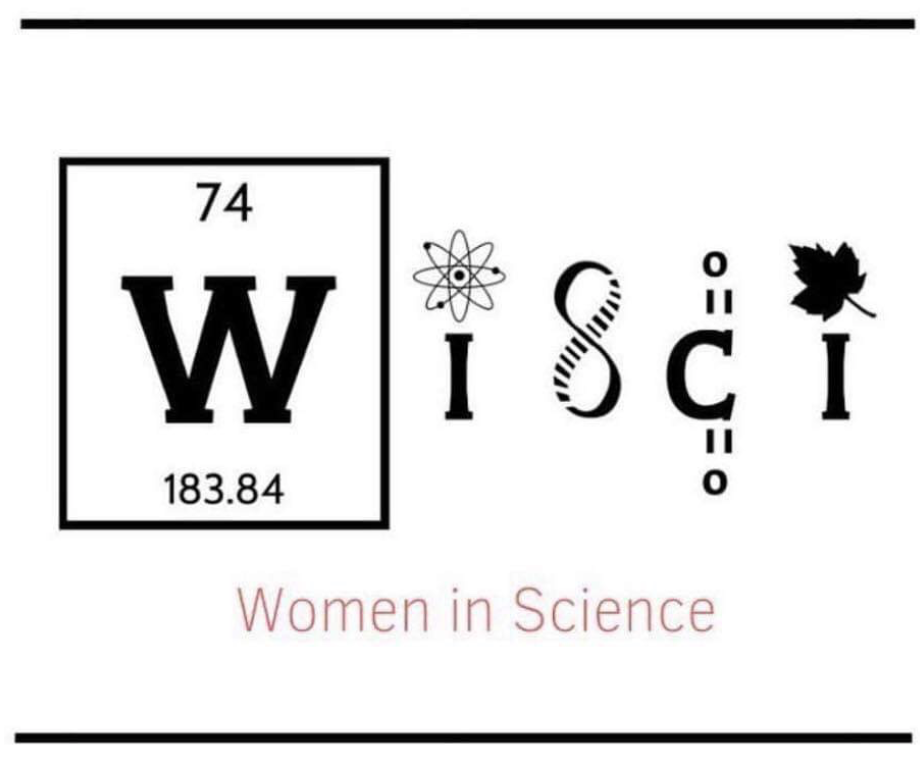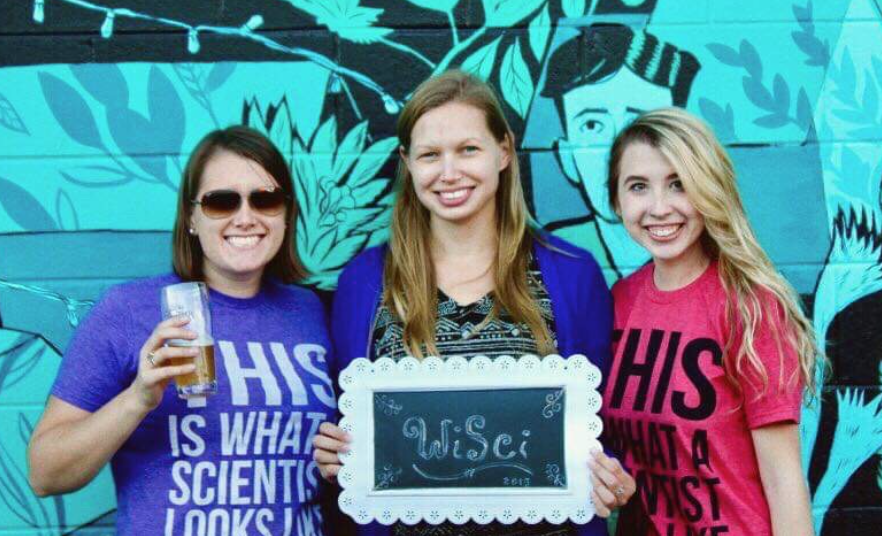THIS IS WHAT A SCIENTIST LOOKS LIKE

 BY MARIA FLOWERS – From humble beginnings rose an organization founded on passion and grounded in career development while promoting equality. Women in Science (WiSci, for short), emerged out of the male-dominated science field, hungry for like-minded peers and mentors that have the potential to accelerate the role of women in science.
BY MARIA FLOWERS – From humble beginnings rose an organization founded on passion and grounded in career development while promoting equality. Women in Science (WiSci, for short), emerged out of the male-dominated science field, hungry for like-minded peers and mentors that have the potential to accelerate the role of women in science.
Its mission: “To build a UGA-wide community of scientists interested in promoting equality in the sciences by offering opportunities for mentoring, networking, and career development.”
“The group was founded back in 2014-2015 by two graduate student women who felt like UGA lacked a community and support system for women in science,” said WiSci president Barbara Del Castello. “They wanted to connect with mentors and peers, and that forms the crux of what WiSci still stands for. WiSci started with a focus on being a support community that could link mentors and mentees together.”
Its most recent meeting, titled “The Science of Self Love,” explored the drudges of pursuing a career in STEM and how to address the stress and sacrifices that come with that decision.
“STEM fields are super demanding and sometimes you can cook yourself to death working,” said third-year biochemistry student Xena Mansoura, who attended a WiSci meeting for the first time on Feb. 13. “It’s so important to make time for yourself after a long day of studying and working in the lab. “
In its first meeting, WiSci let women know that self care is not a selfish act, but a self-sustaining one that can be as simple as meditating for five minutes or chatting it up with a friend.
“My favorite part of the meeting was when they gave us gratitude journals to write down things we were thankful for,” Mansoura said. “It’s simple but it goes a long way in reaffirming your worth.”
And why does it matter? There’s an undeniable amount of pressure to excel in STEM careers today, which extends even more so to minorities and women in the field. There’s a startling amount of evidence on the effect of STEM education and careers on mental well-being.
Vice President Niki Padgett says, “High-achieving individuals tend to set high expectations for themselves. By setting high expectations, we can start to experience the “imposter syndrome,” an overwhelming sense of self-doubt. This feeling causes individuals to think they do not deserve their own accomplishments, as if they were achieved by luck and not hard work.”
These numbers become even more significant when looking at women in the field. In a study using medical students, 40% were shown to experience signs of anxiety or depression. More females reported feelings of anxiety compared to men. According to Psychotherapy, Research, and Report, 70% of high-achieving females have experienced or currently suffer from imposter syndrome. Overcoming the feeling you are not good and understanding your worth is essential to succeeding in the STEM industry.
“We reminded our attendees that many people who experience this are highly intelligent and successful individuals and offered multiple activities to overcome this feeling,” Padgett said. “You should always be proud of your accomplishments, big or small.”
“We talked about imposter syndrome, where people, specifically women in science, think that they don’t belong in their chosen field and it has nothing to do with their merit and everything to do with their gender,” Mansoura said.
On top of being an organic chemistry tutor, Mansoura takes demanding science courses (in addition to those for her philosophy minor), works in a lab on campus, tutors students in organic chemistry and volunteers at a hospital on the weekends. It can become overwhelming trying to stay sane when there are constant external pressures and demands. “It’s important to have things like this(WiSci) to realize that you’re not alone and there’s a safe space for you to go when you do feel alone,” Mansoura says.
“I joined WiSci almost as soon as I could become a member. I was a new Ph.D. student who knew not a lot of people. The strong women I’ve met over the years have become some of my closest friends, and I count myself lucky. Grad school can be really hard mentally, and when I’ve struggled I’ve known I’ve got a lot of women who have either been there and can offer support, or just lend an ear. I can’t imagine being alone in this.”(Barbara Del Castello)
This is thus the heart of what Women in Science aims to curtail: there is hope for women in STEM fields with managing their anxiety and mental health, and it can be as simple as talking to a high-achieving women as a mentor or joining support groups that encourage women to tackle the stereotypes that have been placed on them in STEM. WiSci wants to share vital resources for those to not only achieve success but excel in their chosen science field.
“Our mission this year is to really be a resource for our members. We want to host events and meetings on a wide variety of topics that affect marginalized genders in STEM. Especially topics that might not get the attention they deserve, like mental health.” (Barbara Del Castello)
One of these resources is WiSci’s peer-mentoring program that can match undergraduates to graduate students and graduate students to faculty. Peer mentoring has been shown to increase the retention of minority groups as well as provide positive academic experiences( confidence, motivation, and belonging) for women in STEM fields.
Padgett says, “Our mentoring program set me up with a Ph.D. student who led me in the right direction to find my undergraduate research position, which eventually heavily influenced my career decisions as a scientist.”
While the name comes off as exclusive, WiSci is anything but. Men and women are both welcome to join, no matter where they are in their career journey: undergraduate and graduate students, postdocs, faculty, and staff of UGA.
Del Castello says, “Our name says ‘Women in Science’ but we have really become a ‘Women in STEM’ organization. We have officers and members in all sorts of fields, from chemistry to kinesiology, to mathematics, to physics. In my experience, we all face the same problems of being in male-dominated fields, so rather than turn people away, we wanted to welcome anyone marginalized gendered person to join us.”
And WiSci’s work extends beyond campus, as well. Social media officer Rachel Johnson says, “Not only do we work to support women at UGA, but try to encourage children in the Athens area, particularly girls, to get involved with science.”
For more information on this organization, visit their website at https://wisciuga.weebly.com/ and follow their social media for updates about getting involved!
Twitter: @UGA_WiSci
